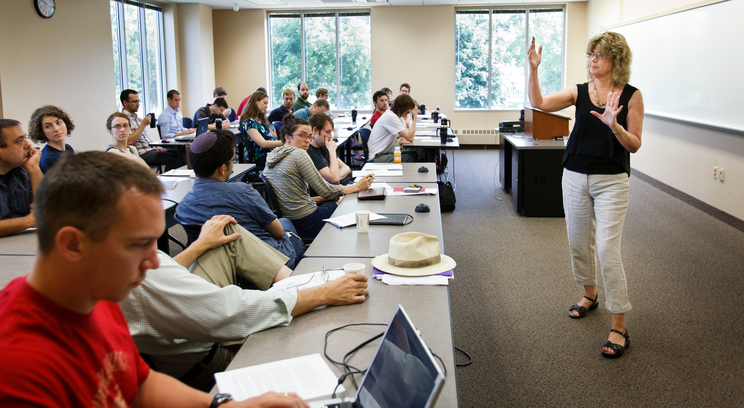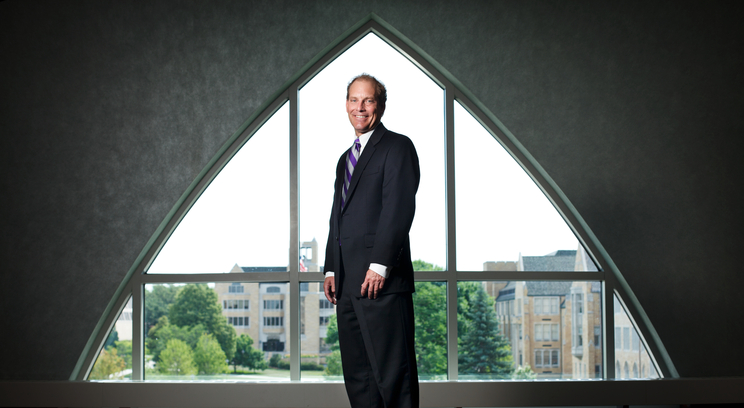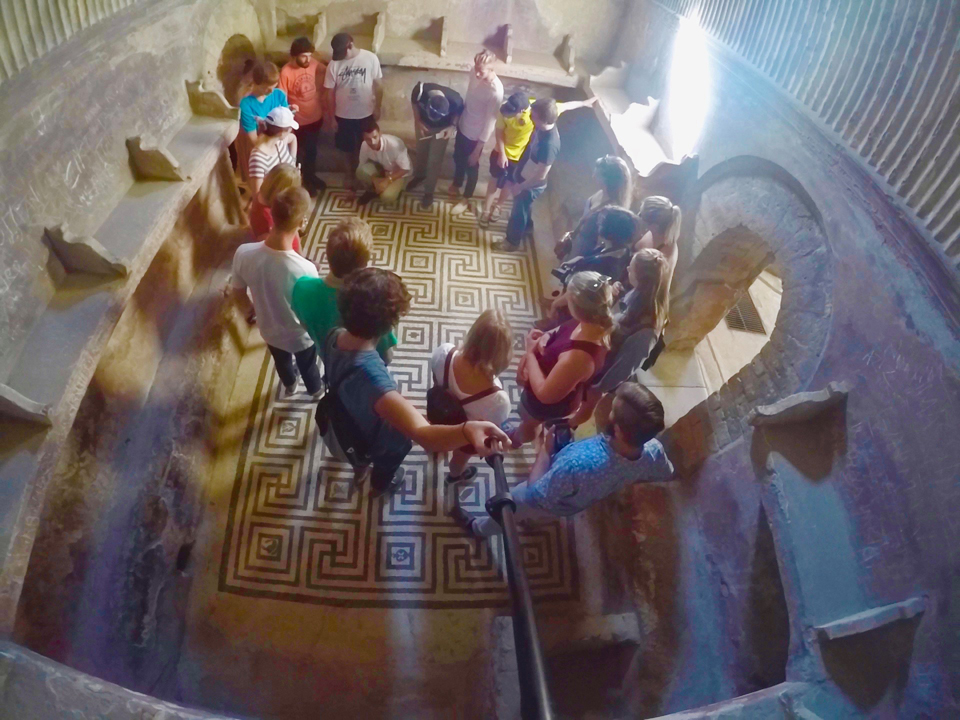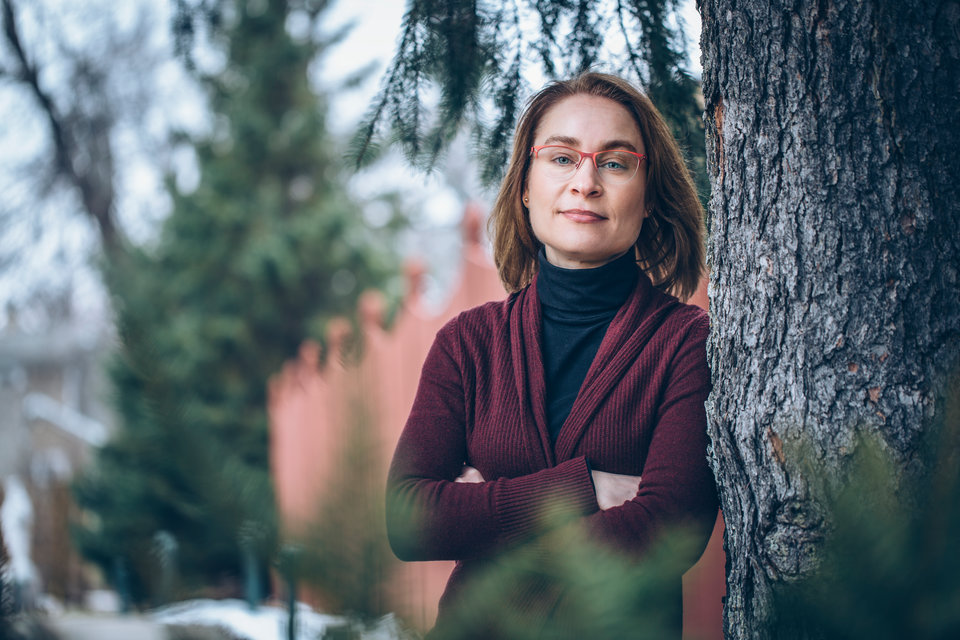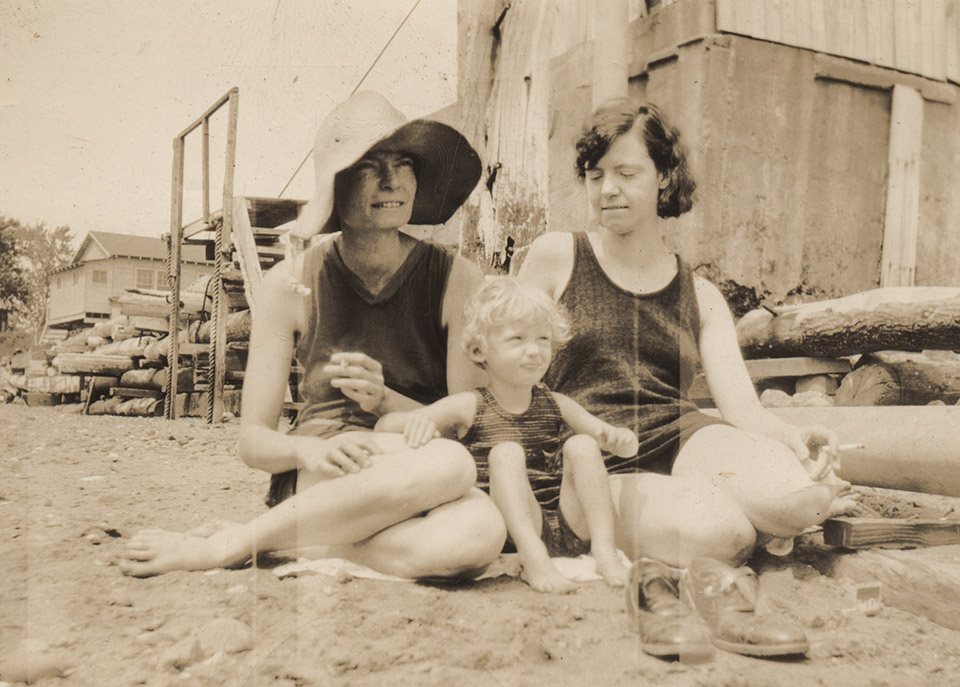A new community of scholars is forming, thanks to the St. Thomas Philosophy Department and associate professor Michael Rota.
For the past three summers, graduate students and beginning professors of philosophy and theology have traveled from around the world to attend the St. Thomas Summer Seminar in Philosophy of Religion and Philosophical Theory, which is led by Rota and coorganizer Dean Zimmerman of Rutgers University, and funded by the Templeton Foundation. The seminar they developed focuses on often neglected, yet widely sought after, contributions to a much disputed field of philosophy: philosophy as it relates to religion. Rota says it has been more than 20 years since a seminar of this magnitude was held.
The presence and popularity of the seminar marks a key change in the relationship between mainstream philosophy and religion. “Forty years ago if you were, say, a committed Christian, you would not mention that [as a philosopher],” Rota said.
But today, graduate students and faculty in top-tier philosophy programs are more open to addressing religious issues, Rota said. Theism, which always has been recognized by philosophy programs at Catholic universities, is now taken as a “serious contender” of relevant importance to all philosophers, he said, so young philosophers and theologians are jumping at the chance to attend a seminar that fills the theistic gap.
Rota sought the Templeton grant because of his interest in the work of Alvin Plantinga, who was a leader in unapologetically Christian philosophical thought. The Templeton Foundation, created by philanthropist Sir John Templeton, supports projects that involve academics asking “big questions” about human purpose. Templeton projects have been funded at several universities, including Notre Dame, Georgetown, Columbia and Oxford. The $709,000 Templeton grant to Rota’s seminar began in 2009.
In 2012, 164 applications for the seminar were received and 21 participants accepted. Applicants must be within five years of receiving their Ph.D.s, and about half the participants are graduate students and the other half junior faculty. All are among the best and the brightest philosophers and theologians from top universities around the world.
Charity Anderson, a postdoctoral fellow at Oxford University, was one of the participants last summer. “The seminar provided a unique opportunity to learn from philosophers doing cutting-edge work in the field,” Anderson said. “The sessions were stimulating, but I also enjoyed the many conversations that took place over meals and down time.”
The three-week seminar brings top academic names to St. Paul to present discussions on a variety of topics in philosophy and religion. “Most [students] of the elite programs in philosophy don’t have the opportunity to take classes in philosophy of religion,” Rota said. “Many of these students are interested in questions about God. So we want to give them a chance to learn from people who are doing the best work in that area.”
Presenters have included Alvin Plantinga of Notre Dame; Hans Halvorson and Thomas Kelly of Princeton University; Eleonore Stump of Saint Louis University; Roger White of the Massachusetts Institute of Technology; and Linda Zagzebski of the University of Oklahoma.
The seminar has covered discussion topics as specific as reductionism and the philosophy of biology, and as open as the problem of evil.
Each session begins much like a lecture, with each expert presenting a view on the topic. Generally philosophers of opposing viewpoints are chosen to present their positions, and a debate follows. Rota said summer 2012 highlights included a discussion focusing on neuroscience and philosophy by Jeffrey Schwartz, UCLA School of Medicine, and Hans Halvorson, Princeton University. Another highlight was a session on human freedom and divine foreknowledge by Linda Zagzebski, University of Oklahoma, and David Hunt, Whittier College. Rota said this puzzle is thousands of years old. “The problem of freedom and foreknowledge has to do with the question, ‘if God knows what you are going to do in the future, how can you still be free?’” Rota said, explaining the topic with enthusiasm. “How can it really be up to you if he already knows what you will choose?”
These provocative questions and expertly led debates keep enhancing the reputation of the seminar and the competitive nature of applications to participate.
Philosophy Department chair Sandra Menssen believes the seminar is a wonderful opportunity for both the St. Thomas community and scholars from around the world. She said members of her department are able to sit in on the discussions. “Rota has done a wonderful job assembling an internationally renowned group of presenters for the summer seminars,” Menssen said. “He’s brought in the best philosophers of religion in the English-speaking world to lecture.”
The seminar will return in the summer of 2014 with a fresh group of philosophers and theologians.
Read more from CAS Spotlight.
